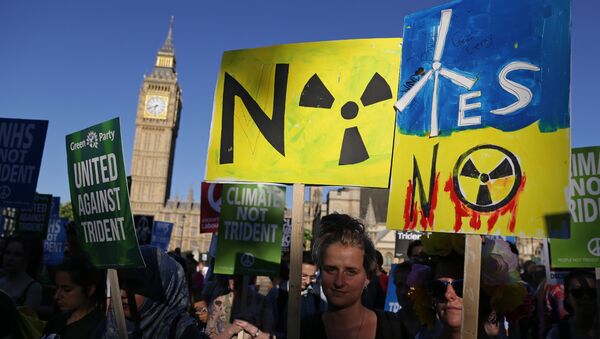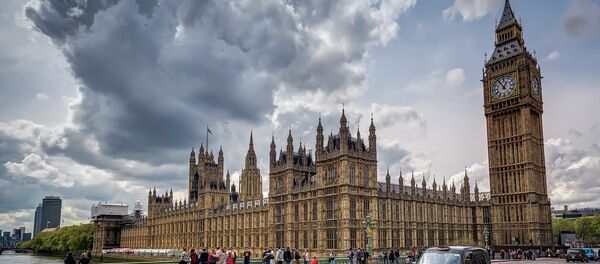"Nuclear weapons do not protect against terrorism, they don’t provide deterrence to any of the security challenges that the UK faces. So again, it is an application of a completely inappropriate theory of 1950 cold war deterrence to situation where Britain faces a whole range of security challenges for which nuclear weapons are utterly irrelevant," Johnson said.
On Monday, UK parliamentarians in the House of Commons voted in favor of renewing the United Kingdom’s nuclear deterrent program with four new Vanguard-class nuclear submarines.
Johnson said that the theory of nuclear deterrence was developed in the 1950s to justify spending large sums of money on the nuclear arms race between the United States and the Soviet Union. This deterrence was supposed to reassure people that the weapons would stop a war rather than lead to a new one.
"But in the real world, post-Cold War this is not how the deterrence could possibly work," she said, stressing that former US State Secretary Henry Kissinger and former US Defense Secretary Robert McNamara clearly recognized that relying on nuclear weapons for deterrence is increasingly hazardous and decreasingly effective.
"For the British, they are still clinging to this idea despite the fact that having nuclear weapons since 1952 has not prevented us going into wars, it has not prevented wars like the Falklands, having nuclear weapons didn’t stop Russia losing its war in Afghanistan and it did not prevent the US losing its war in Vietnam," Johnson said.
The total estimated cost of renewing Trident is 167 billion pounds ($244 billion) over the 32-year lifespan of the system, between 2028 and 2060, according to the International Monetary Fund.




